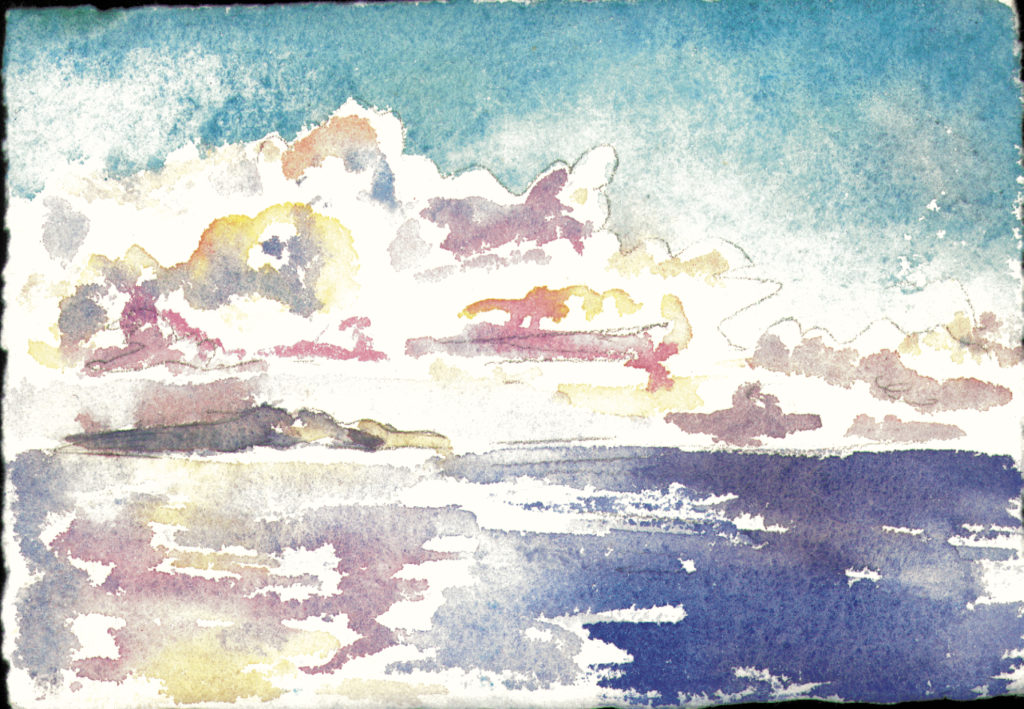A nation of sea-farers.
My mother’s grand-father had boats on the Black Sea. They spoke Bulgarian, Russian, Greek and French. My father’s father was a land-locked islander high in the hills of Paphos he had vines growing above precipitous drops, olives, goats. He was the village president. He had been a barber in Cairo. When?
I must find out.
We do not choose our place of birth but we acquire other nations along the way – culture, language, personal affinities.
Is Greek-ness defined by language, by religion, by where you live, by a decision to be Greek?
Am I more English because I read “The Sixth Form at Malory Towers” when I was seven and can explain to my son what a gymslip is?
One friend was educated in English schools in Turkey and Hungary and then boarded with the Jesuits in Sussex, but there is nothing English about him other than his accent. Another was brought up by her thoroughly English mother in Paris and London but is distanced from English life and has chosen to identify with French culture. An identity is also affected by what we choose to embrace.Voices. Spirits.
You have so many voices inside you – that in the end you have to write, to eject them to give yourself space.My mother’s family, from bourgeois Greek merchant families in Bulgaria and Russia, was exchanged, “repatriated” – decisions between nations, exchanges of land and peoples, movements of borders and ideas of nationhood.
Unconsulted.
They were given vines and some land around Volos in Central Greece.
But their Balkan wealth was lost.
(Where does the word “Balkan” come from?)
For my mother, London – England was always “xenitia” a sojourn abroad in a strange land, an interlude, something to be got through – an alien place, culture, language where she tried to keep the Greek flag flying….
For my father it was an “arrival” – he was there and he was “staying put”.
Despite his love of intrigue, his “Ottoman” mind, he admired all things British – its statesmen, order, discipline, hotels, opportunities, but stuck to Greek-Turkish coffee.
He knew the seduction of the Latin lands but also that “real life” was here not there.
In any case, the sun, the sea, held no attraction for him: he was a “mental” person, oblivious to his physical surroundings.
For my mother, now that she is back in “her beloved Greece”, she feels a void where her London life had been – no longer a country, a house, a family that she can identify with it, just her memories of forty years and her husband’s grave…….
Entry for 5 July 2003 – Lefkatha/ Zakynthos Sketchbook
Travelling to Ithaca: the meaning – “i ousia” – is in the journey. Kavafis, another Greek of the diaspora – “i Polis” – the City – we are all the same – which is our homeland? – somewhere in the heart – obsessed with journeys, with belonging, with memories and nostalgia – the inability to be “there” (or anywhere) – where? Greece? the “mother country”? Anywhere / Nowhere? the inability to fully be, elsewhere: so out of this perpetual dissociation, journeys, physical and of the mind – Kazantzakis, Kavafis, Kounellis, – Kounellis – rails, the railways of our Western guilt, the bad conscience, – but that is all too heavy – there is the memory of the possibility of an existence that is absolute simplicity: the sea breeze on your skin, a peach tree growing out of the sand, the effortless blue of sky and sea, golden islands on the horizon, a cafe table in the shade, intimate conversations with strangers.
(Extract from artist’s book “Dance, Dreams and Journeys – fragments of a life”)
